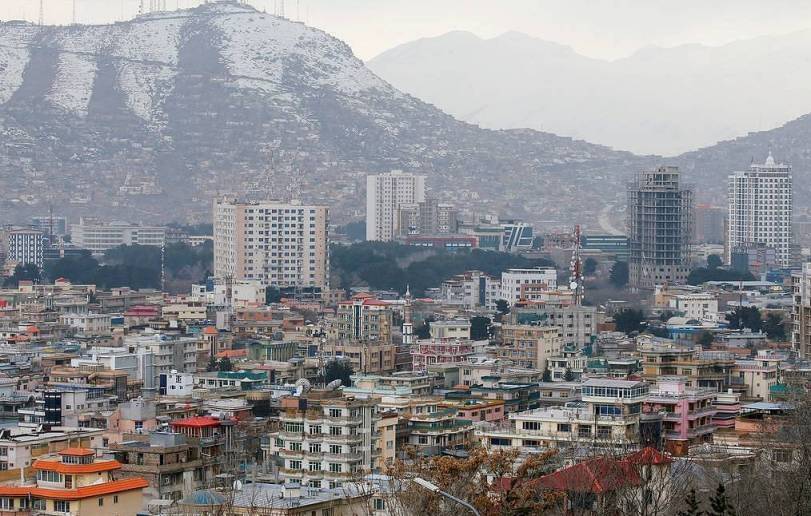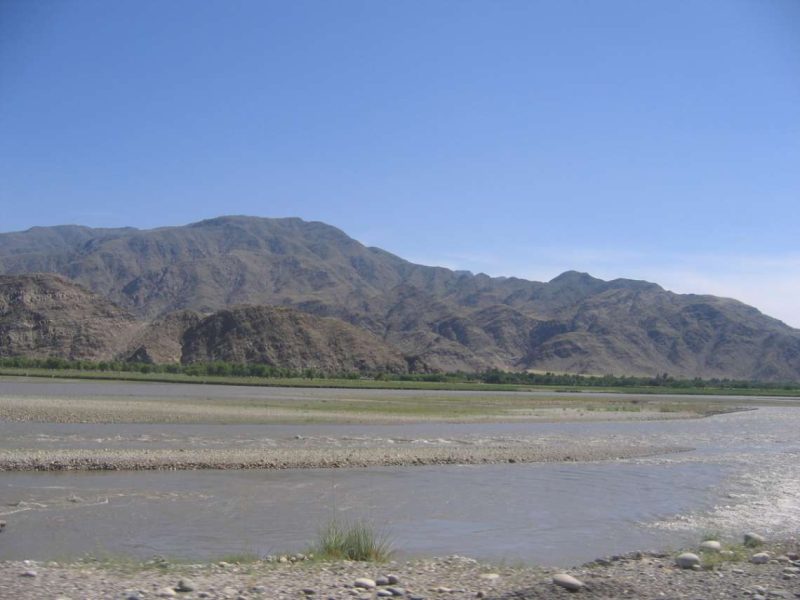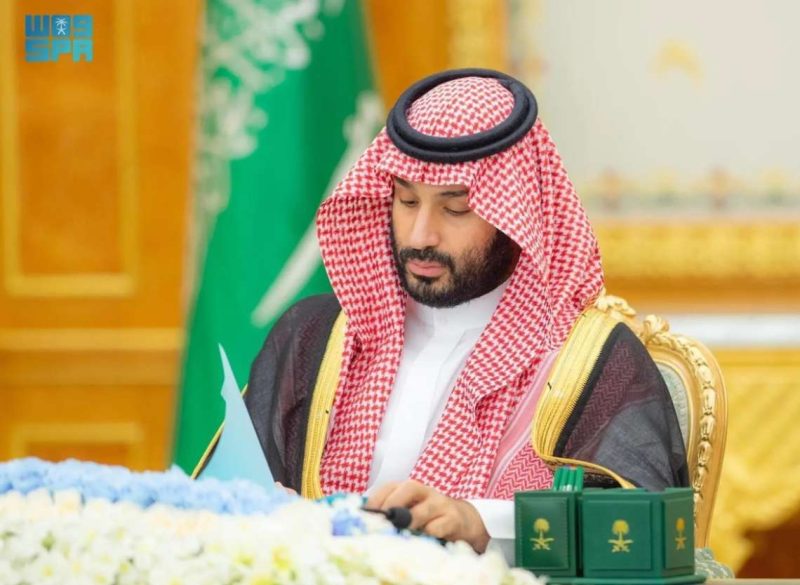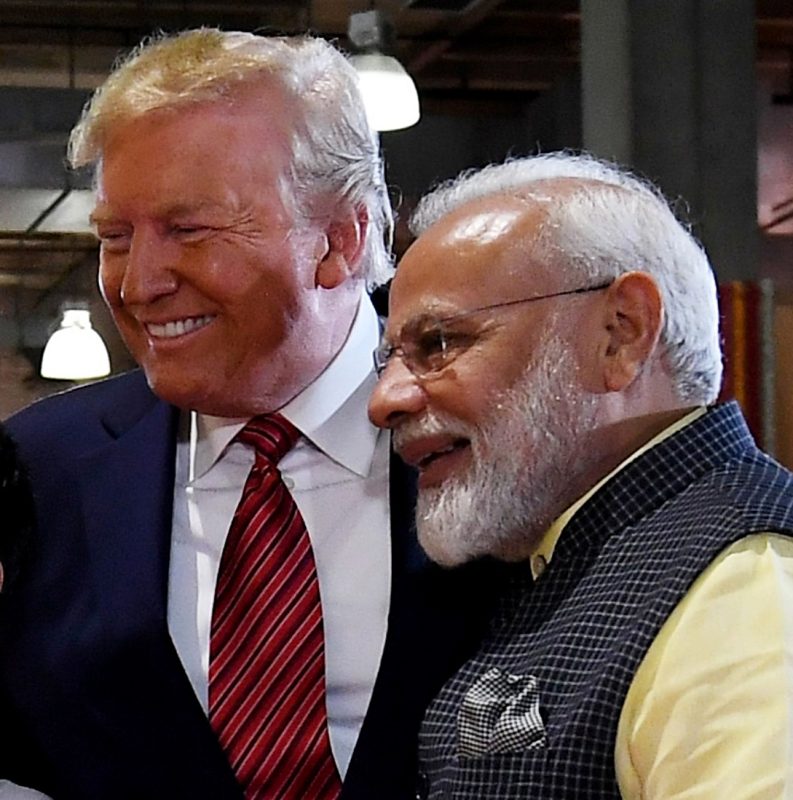Taliban-ruled Afghanistan would upset India’s dream of connecting to Central Asia via Iran’s Chabahar port. The prospect of Taliban-ruled Afghanistan emerging as an epicenter of global terrorism cannot be ruled out just yet, writes Sankalp Gurjar
Surprising everyone, the Taliban has won a stunning military and political victory. The United States (US)-supported Afghan government led by President Ashraf Ghani could not stand up to the Taliban assaults and has ultimately surrendered.
In a lightning campaign, Taliban forces managed to reach the gates of Kabul in record time and Have now taken over power. According to a Reuters report former President has abdicated and moved to Tajikistan. It is being estimated that a monumental humanitarian tragedy is in the making and the fate of thousands of Afghan lives hangs in balance, not to speak of the modern values, democracy and liberties. Amid this crisis, a cold geopolitical calculation is needed.
The rapidly changing political and more importantly, military situation in Afghanistan has forced all major stakeholders to re-evaluate and adjust their strategies. India is no exception to this. As the shape of a new government led by the Taliban becomes clearer, India will have to find ways to maximize its policy options and minimize the damage to its interests. For now, protecting the immediate and most-important interests, security of the embassy staff and granting asylums and visas to India’s allies in Afghanistan is a priority.
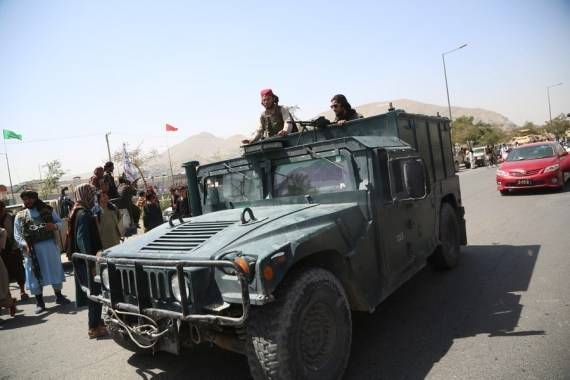
A lot depends on the evolving international response to the victorious Taliban. The military forces of US and UK are still in Kabul and are busy evacuating their own nationals. The fate of thousands of Afghans who helped them remains unclear. However, as the Taliban has reached Kabul while the Americans are still there, the previously drawn plans will need to be adjusted. How will the US, UK and other western nations view the Taliban-ruled Afghanistan? Although the Taliban has entered Kabul ‘peacefully’, can they be given the real, much sought after prize of international recognition? China, Iran and Russia have already engaged the Taliban and it will be interesting to see how they deal with the new rulers of Kabul. Pakistan might actually feel a sense of accomplishment and perhaps would like to maximize its gains through the Taliban. Along with this, the domestic behavior of the Taliban will also be a factor to watch out for. The task of governing a diverse, difficult and complex country like Afghanistan is never easy. Therefore, a lot will also depend on how the domestic responses to Taliban rule pan out.
India’s concerns
In this matrix, India has three core concerns that will contribute in making its policy towards Afghanistan. The first and foremost concern is the future of Pakistan-sponsored terrorism. Taliban-ruled Afghanistan may perhaps emerge as a terrorist breeding ground. Recent revelations indicate that Pulwama attack of 2019 was planned in the Helmand province (Afghanistan). In the evolving context, Pakistan-supported, India-focused terror groups like Jaish-e-Mohammed may perhaps shift (willingly or by force, prodded by their Pakistani handlers) their bases to Afghanistan.

Pakistan’s plans
It will help Pakistan to demonstrate to the international community that it has closed down terror bases and consequently, the pressure of the Financial Action Task Force (FATF) might be reduced. It may perhaps be taken off the ‘Grey List’ as well and the financial squeeze applied by the FATF restrictions would be eased. It will certainly embolden Pakistan further.
Related to this, the second concern is the growing leverage of Pakistan in Afghanistan as well as vis-a-vis major players. Pakistan would want to achieve its cherished dream of so-called strategic depth in Afghanistan and would like to undercut India’s role to the extent possible. Pakistan’s angry reactions to the news of India reaching out to the Taliban was perhaps a sign of things to come. It would work to ensure that India’s leverage over the new regime in Kabul remains as weak as possible and for all practical purposes, India stays out of Afghanistan.
ALSO READ: Why is Tehrik-e-Taliban Pakistan giving Islamabad a big headache?
Pakistan would be a key element in China’s engagement with the Taliban. Security of China-Pakistan Economic Corridor (CPEC) investments and the Uyghur separatism are China’s concerns in Afghanistan. In the geopolitical vacuum left by the US withdrawal, China would also like to fish, albeit in a cautious manner, in Afghan waters to project its growing power and influence. The role of Pakistan will be critical in Chinese calculations. In the geopolitics of Afghanistan, Russia would also like to keep Pakistan on its side. Therefore, although Pakistan will be busy carving a special role for itself in Afghan affairs under Taliban, the geopolitical prominence of Pakistan is set to go up. It doesn’t bode well for India.
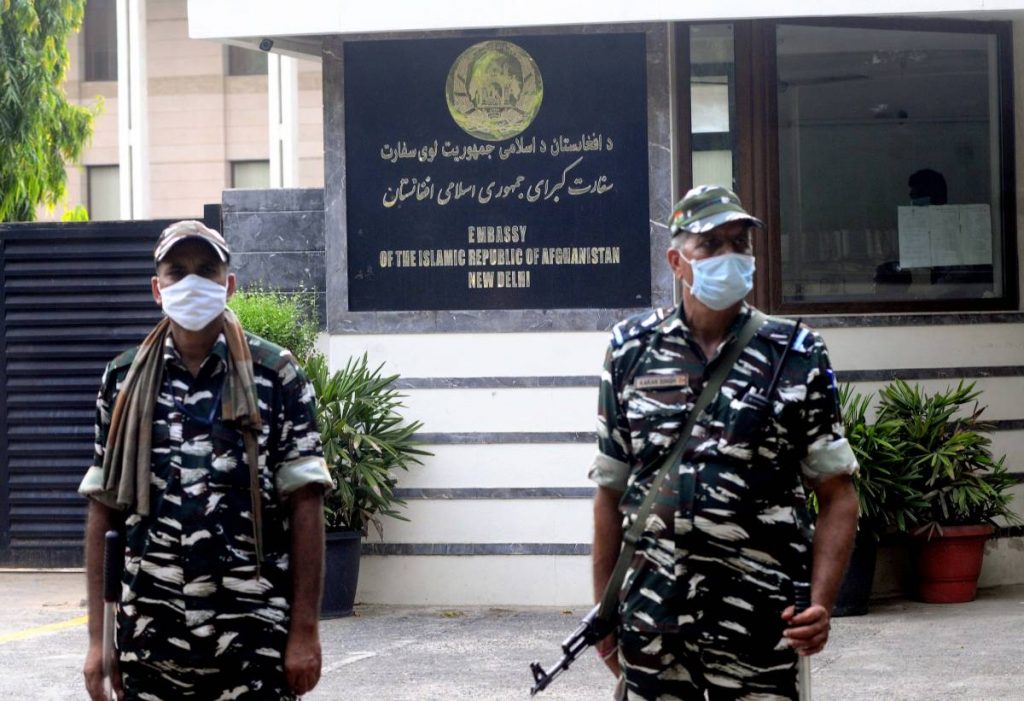
Stop for India’s plans
And finally, the third concern is the deteriorating regional security environment in India’s western neighborhood. Taliban-ruled Afghanistan would upset India’s dream of connecting to Central Asia via Iran’s Chabahar port. The prospect of Taliban-ruled Afghanistan emerging as an epicenter of global terrorism cannot be ruled out just yet. The possibility of foreign fighters entering Afghanistan and getting training, weapons and sanctuary remains real. Already, the price of guns in black market has fallen by about 40% in the last few months. With the Taliban in Kabul, the poppy cultivation and drug trade may also receive a boost. It has intimate links with criminal activities. The nexus between drugs and weapons smuggling is a real threat and the Pakistani coast is likely to emerge as an important conduit. Therefore, a renewed focus will be needed on India’s internal as well as maritime security.
ALSO READ: China Expects Taliban To Leave Terrorism Past
For now, many believe that India does not have enough leverage with the Taliban. However, it needs to be understood that a major power like India cannot be kept out of the Afghan conundrum for long. The situations will present themselves which will open up opportunities for India. The supposed bonhomie between Taliban and Pakistan will be tested once issues like Durand line, Pashtun nationalism come to the fore. Can Pakistan realistically control the Taliban in Kabul? Would it be acceptable to Taliban? Or would they resent Pakistani control and would seek to diversify their regional partnerships?
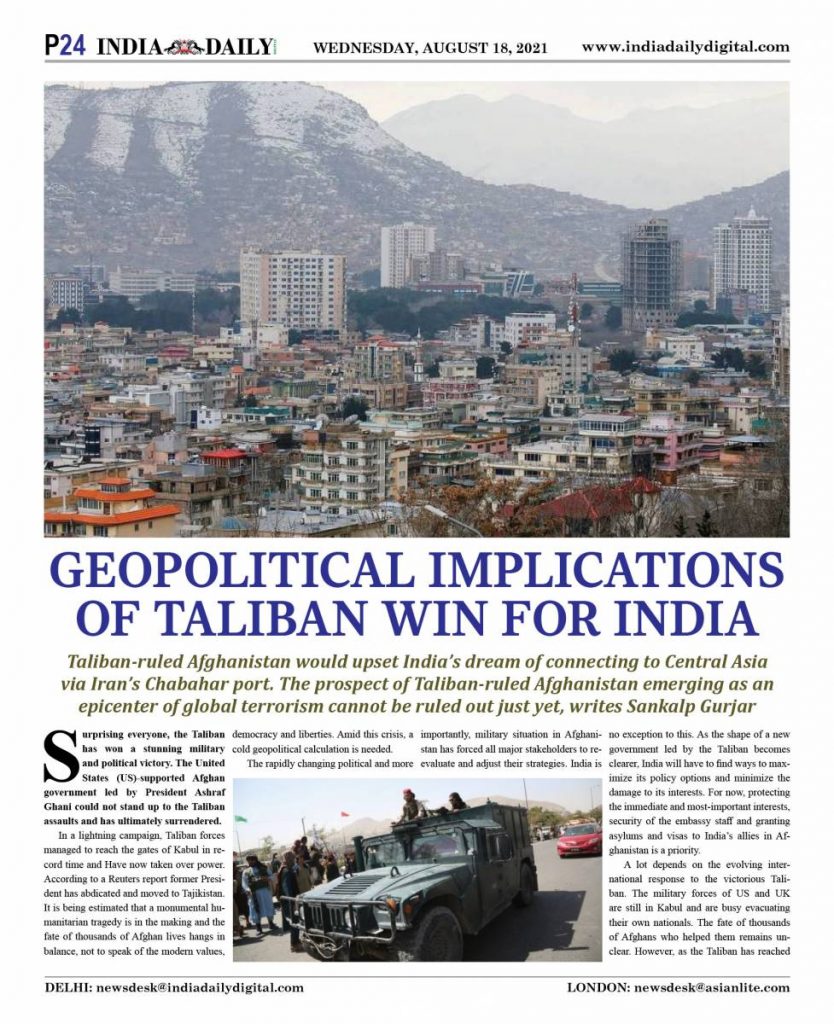
India will be presented with interesting, if difficult, opportunities in Afghanistan. It needs to be ready to exploit, and if possible, widen, the internal contradictions between Taliban and Pakistan. The situation in Afghanistan also necessitates India to strengthen ties with Iran, Russia and Central Asian states. Shared concerns and interests in Afghanistan will be a binding factor. In the 1990s, the United Arab Emirates (UAE) and Saudi Arabia were key players in Afghanistan. Although these powers are not in the driving seat in the present context, India’s deepening ties with these Gulf powers could perhaps open up opportunities to work together in Afghanistan. India will need to be nimble-footed and agile enough to make quick adjustments to protect its interests and allies in Afghanistan. Resurrecting age-old relationships and cultivating some key factions in the new regime might help as well.
In the coming weeks and months, as the situation becomes clearer, India can chart clear policy towards the evolving situation in Afghanistan. Till then, improvise and adjust is likely to be the mantra of India’s policy.
(Sankalp Gurjar is a Research Fellow with the Indian Council of World Affairs, New Delhi. Views expressed are personal. They do not represent the views of ICWA. The content is being carried under an arrangement with indianarrative.com)


